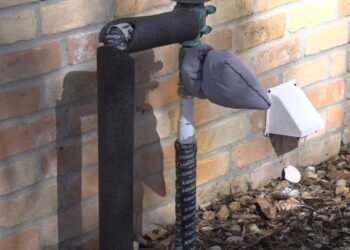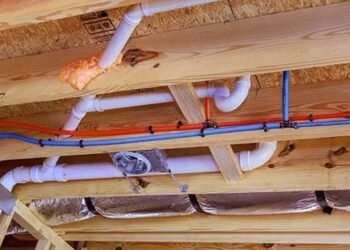Environmental challenges are growing, with climate change and resource depletion becoming urgent concerns. Energy conservation is crucial to address these issues, reducing our impact on the planet and preserving resources for future generations. Smart home devices offer an innovative solution to this problem, allowing homeowners to manage and reduce their energy consumption easily.
These intelligent devices and systems work together to create an efficient household. They help homeowners use less energy, decrease their environmental impact, and save money on utility bills. Smart technology makes monitoring and controlling energy usage in the home simple.
I have discussed various ways to use smart home devices for energy savings, like heating, cooling, lighting, and more. So, read on to discover how to make your home more eco-friendly and cost-effective.
The Basics of Intelligent Home Energy Control
Smart energy systems act as your home’s energy manager. They gather information from your devices and look at how you use power. These systems then give you helpful tips and insights. This makes it easier for you to save energy and money.
The Role of Smart Meters
Smart meters are the foundation of an energy-efficient smart home. They show you how much power you’re using right now, not just at the end of the month. This helps you spot where you might be wasting energy. Many power companies will put in a smart meter for you. These meters can work with other smart home gadgets to help you save even more energy.
Heating and Cooling Optimization
Smart thermostats learn when you need heating or cooling. They adjust temperatures automatically to save energy when you’re away or asleep, keeping you comfortable and saving money.
Smart Thermostats- The Key to Efficient Climate Control
Smart thermostats are intelligent enough to learn what temperatures you like and when you’re usually home. Then, they set the right temperature on their own. When you’re out or sleeping, they turn the heating or cooling down to save energy. Some can even tell when you’re coming home and make it happen before you arrive.
Zoned Heating and Cooling
In big houses, smart thermostats can heat or cool different areas separately. This is called zoned heating. It saves energy by warming or cooling only the rooms you’re using, not empty spaces.
Lighting Solutions for Energy Savings
Smart lighting technology helps reduce power use, making your home more efficient. Some of them are the following:
Smart LED Bulbs and Fixtures
LED bulbs already use less energy than old-style bulbs. But smart LED bulbs are even better. You can control them with your phone, even at home. You can make them dimmer to save more power. They can turn it off by themselves when no one’s using them. Some smart bulbs can even change their light color during the day. This helps your body’s natural sleep cycle and saves energy, too.
Motion Sensors and Occupancy Detectors
Motion sensors and room detectors work with your lights. They turn lights on when you enter a room and off when you leave, preventing wasted energy from forgotten lights.

Appliance and Device Management
New appliances often have smart features. These help you use less energy in your home like:
Smart Power Strips
Eco-friendly smart home products include smart power strips. These can tell when devices are not being used but are still plugged in. They then stop power from going to these devices. This greatly helps in living rooms and home offices, where many gadgets are often connected.
Energy-Efficient Smart Appliances
Many new appliances, like fridges and washing machines, have smart features to use less energy. They can work when electricity is cheaper, use special power-saving settings, and show you how much energy they’re using. This helps you use them in the best way.
Home Energy Generation and Storage
Making and storing your energy at home increases savings a lot. It’s an exciting way to increase your home’s efficiency.
Solar Panel Integration
Smart home systems can link with solar panels to use energy better. They use solar power first when the sun is shining. When there’s not enough sun, they switch to regular power. This helps you get the most out of your solar panels.
Battery Storage Systems
Battery storage systems work with solar panels and smart home tech. They keep extra power for when you need it most, like during blackouts or when many people use electricity. This means you depend less on the power company. You can use your own stored power instead.
Water Conservation Through Smart Technology
Heating and using water takes a lot of energy. Smart water systems help save both water and energy in the following ways:
Smart Water Heaters
Smart water heaters recognize when you usually need hot water. They only heat water at those times. Some can even tell when you’re on vacation and save energy. They can also spot leaks, which saves water and keeps your home safe.
Smart Irrigation Systems
If you have a garden or lawn, smart watering systems can help. They check the weather and how wet the soil is. Then, they water only when needed. This stops waste and saves energy used for pumping and heating water.
How to Increase Efficiency with Home Automation
Home automation links all your smart devices, working together as one system to save the most energy possible.
Setting Up Smart Sequences
You can set up automatic routines to make your home super efficient. For example, a “goodnight” routine could do several things simultaneously. It might turn down the heat, switch off all lights, and turn off devices you don’t need overnight. All this happens with just one command.
Voice Control and Smart Assistants
Smart assistants that listen to your voice help you save energy easily. Just by speaking, you can change the temperature, turn off lights, or put many devices into energy-saving mode. It’s like magic for saving power.
Monitoring and Optimizing Your Energy Savings
To save energy, watch and improve how you use power often. You can do it using:
Energy Monitoring Apps
Smart home devices for energy savings often have apps you can use on your phone. These apps show you how much energy you’re using, give you tips to save more, and let you know if your energy use looks odd.
Regular System Audits
Look over your smart home system regularly to make sure everything is working right. You might find new ways to save energy. Keep an eye out for new smart devices or features, too. As technology improves, you might find more ways to make your home efficient.
Conclusion
Using smart home tech to save energy does more than just cut your bills. It helps create a better, more comfortable home that’s good for the planet, too. Using different smart devices together lets you use much less energy without giving up comfort. Your home might even feel nicer! As these gadgets keep getting better, smart homes will save even more energy. This is a big step towards a cleaner, greener future for everyone.












